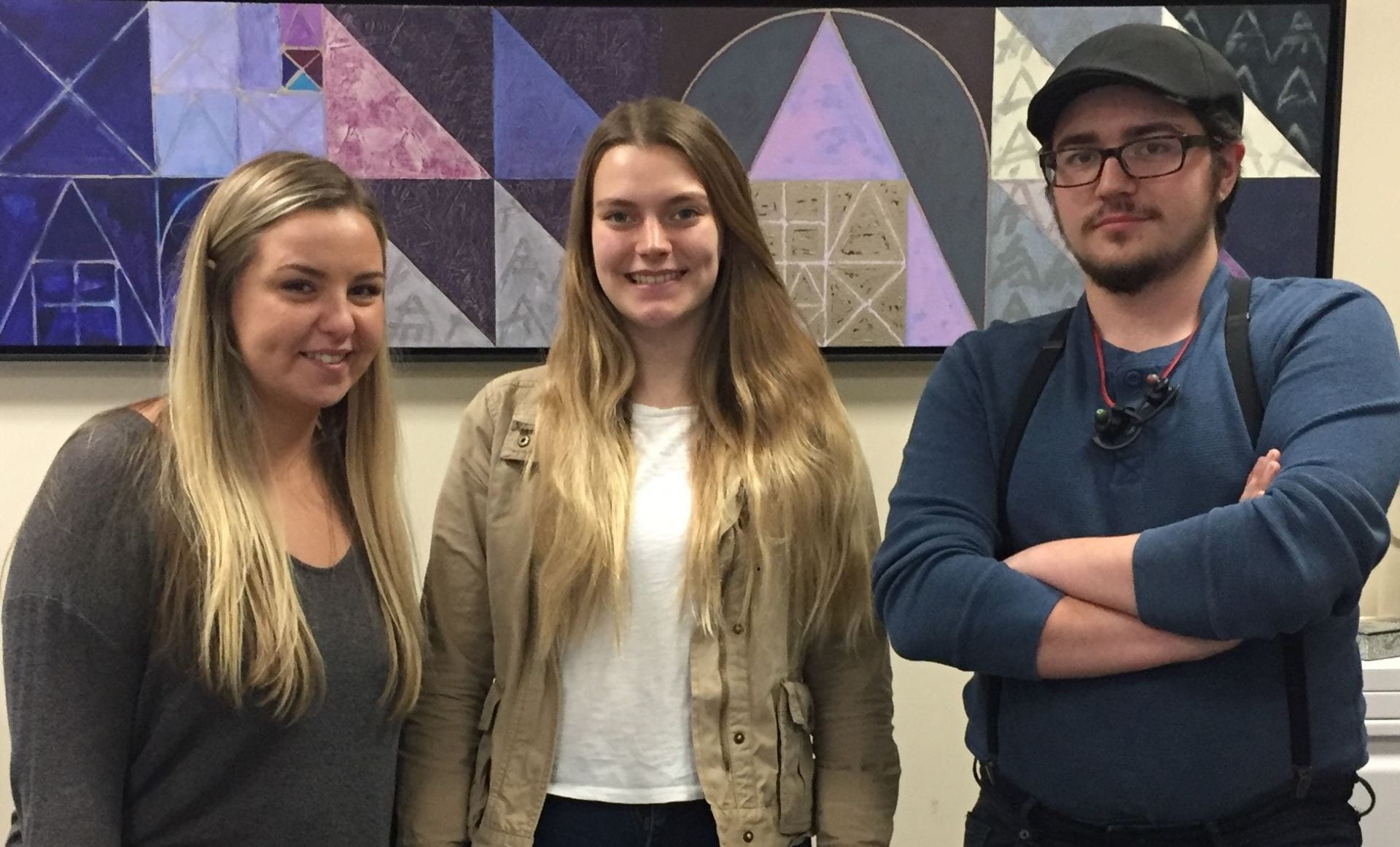
The students who helped the Pension Action Center process a big increase in calls for assistance. Left to right, Elizabeth Arpino, Kailyn Fellmeth, and Andrew Bellahcene.
Can you wear out a phone?
The Pension Action Center at UMass Boston’s Gerontology Institute is always busy fielding calls from people seeking help to track down their pensions or investigate benefits they believe they are owed. But the pace of callers seeking PAC helped went into overdrive during the fall.
That posed a problem for the small center with a limited number of people on hand to manage the volume. One solution: A grant from the McCormack Graduate School allowed PAC Director Anna-Marie Tabor to hire UMass Boston undergraduate students to jump in and help process the pension queries during the fall semester.
“They’ve provided invaluable help to us as we try to serve an increasing number of retirees” said Tabor. “At the same time, it’s been a way for them to get real-life experience interacting with the people who call PAC. They’ve learned about the kinds of challenges our clients face.”
Those students — Elizabeth Arpino, Kailyn Fellmeth and Andrew Bellahcene – helped to process pension queries by returning calls and emails, and conducting preliminary in-take interviews before PAC attorneys became involved. They also helped develop Spanish-language informational fliers about the center and identified other regional non-profit service organizations PAC might coordinate with in the future.
So what caused the surge in PAC activity that warranted the extra help? Publicity was certainly a big factor.
The pace of calls to PAC typically picks up when the center is in the news or receives some other kind of public attention. That happened in a big way in October.
The center was featured in a Chicago Tribune column about its role pursing pension rights on behalf of clients. AARP’s magazine also published a story on the problem of tracking down pension benefits, leading to increased activity at PAC and other pension centers across the country. Massachusetts Secretary of State William Galvin was featured in a televised public service announcement highlighting available help for state residents who believed they were owed pension benefits.
The impact: PAC received 118 requests for assistance in October, an increase of 63 percent compared with the same month the previous year.
The direct interactions with people seeking assistance gave the students a realistic look at the financial problems and challenges facing many older adults.
“Most of the people I talked with were very friendly but you could tell many of them were so desperate for the money,” said Arpino.
Tabor said most of the center’s clients are low- and moderate-income people over the age of 60. “Many callers tell us they don’t know how they’ll make ends meet unless they can identify additional sources of income,” she said. “Helping one of those callers get the pension they earned can change their life.”
Tabor is hopeful the center will find ways to bring more students into its pension assistance work in the future.

Leave a Reply